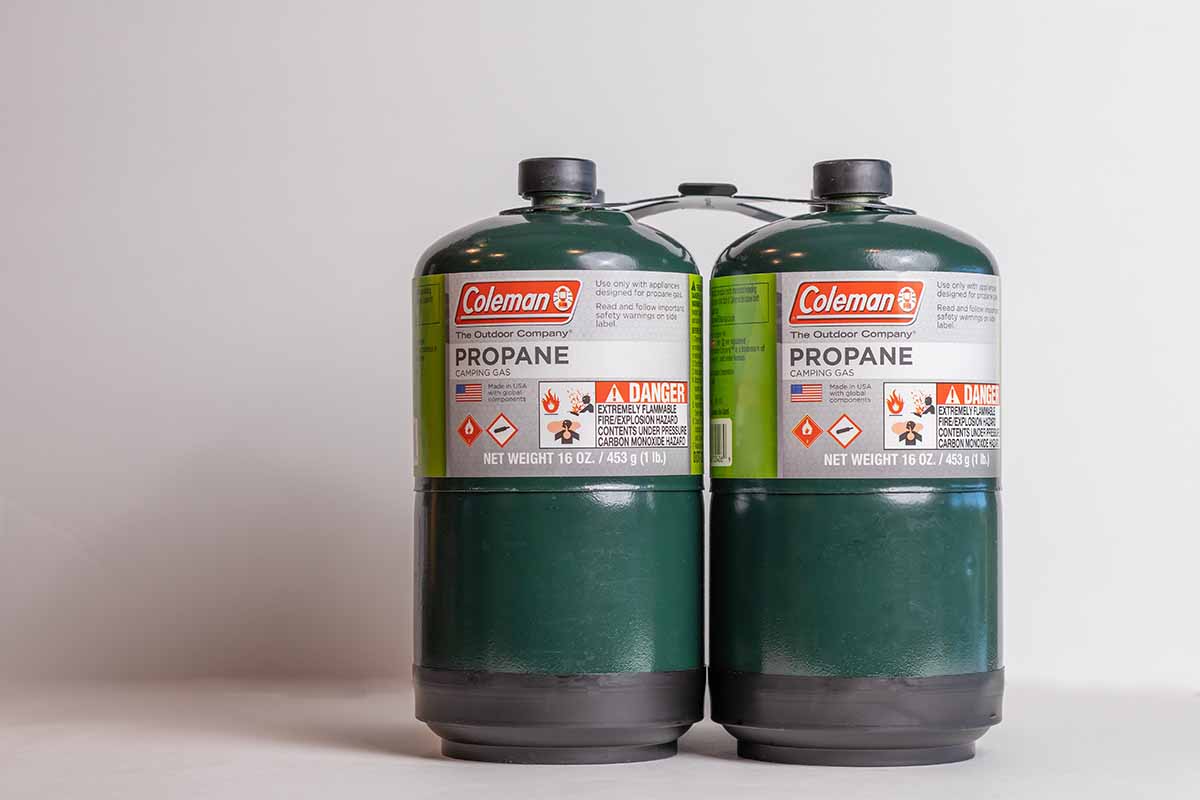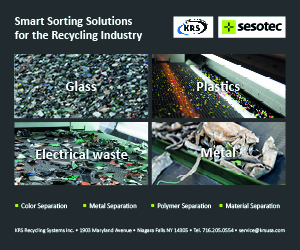
Residents in the Constitution State will be able to recycle fuel cylinders thanks to a new EPR law. | Saide Mantell/Shutterstock
Connecticut has become the first state in the U.S. to address the hazard of fuel cylinders in the solid waste stream with an extended producer responsibility law.
Fuel cylinders can explode and cause fires in MRFs and other waste management facilities. Connecticut Gov. Ned Lamont signed a bill on May 10 that aims to help reduce the risk.
PA 22-27 requires producer responsibility for cylinders like those used for camping and grilling, and any others that contain portable propane, butane and helium. Specifically, it covers “nonrefillable and refillable cylinders with flammable pressurized gas, helium or carbon dioxide, with between 0.5 and 50 pounds of water capacity, that is supplied to a consumer for personal, family or household use.”
The law does not include medical cylinders or those containing oxygen, refrigerants, acetylene, hydrogen, ethylene or foam adhesives.
Under the law, producers will also have to educate consumers about the proper end-of-life management and locations of collection sites.
Producers can act alone or form stewardship groups to meet their obligations. They are directed to minimize public sector involvement in management of the cylinders and provide “free, convenient and accessible state-wide opportunities” for collection.
Stewardship groups are tasked with setting their own performance goals for the first two years of the program. The Commissioner of Energy and Environmental Protection may assess a fee to each producer or group for administration costs based on their share of the gas cylinder market, according to the bill, and total annual fees for each producer cannot exceed $2,000.
Republican state Sen. Craig Miner, who helped push the legislation forward, said in a statement that “as a longtime sportsman and outdoor enthusiast, I know the benefit of gas cylinders, but I also know we need a collection and recycling system to ensure proper disposal.”
Democratic state Rep. Joseph Gresko also championed the bill. He said in the statement that the program will “serve Connecticut well and should be a model for other states to follow in pursuit of a sustainable future.”
The Product Stewardship Institute said in a newsletter that it worked for two years to adapt its model gas cylinder EPR legislation and generate support for Connecticut’s bill.
“The smallest amount of residual propane can cause explosions and fires, which is why the cylinders are typically rejected by recyclers, even though they are made of valuable materials,” the newsletter said. “But that’s all about to change in Connecticut.”
Cylinder manufacturer Worthington Industries helped shape the legislation, soliciting stakeholder input from local governments, retailers, waste management service providers, propane distributors, state parks, private campgrounds, colleges and state government.
Worthington also delivered a report and recommendation of support to the state legislature. Now that the bill is law, the company will work with other residential gas cylinder producers to arrange for the pick-up, transportation and recycling of cylinders. The law requires them to submit plans by July 1, 2023, and implement those plans by Oct. 1, 2025.
Annie Lane, director of product sustainability for Worthington Industries’ Consumer Products business, said in the statement that Ontario’s extended producer responsibility (EPR) system for cylinders was used as a model.
“We are looking forward to getting started in Connecticut and replicating this collaborative and innovative approach in other states to solve this recycling challenge,” Lane said. “We believe this proven formula includes maintaining a focus on outcomes, ensuring a level playing field for producers and similar products, providing for proper oversight and enforcement and establishing an achievable timeline to ensure a successful implementation.”
More stories about EPR/stewardship
- CAA publishes revised Colorado program plan
- WM outlines investments in recycling infrastructure
- ‘Operational readiness is high’ as Oregon rolls out EPR



